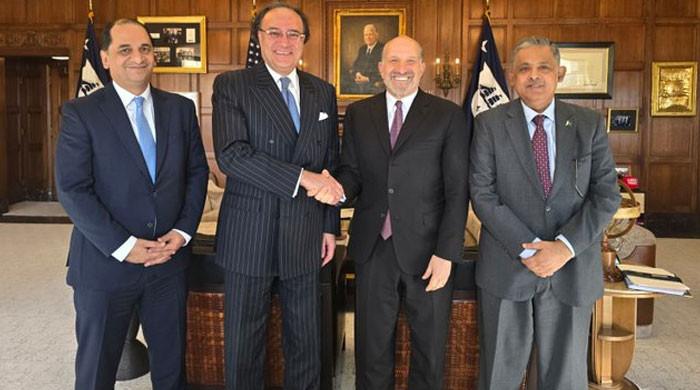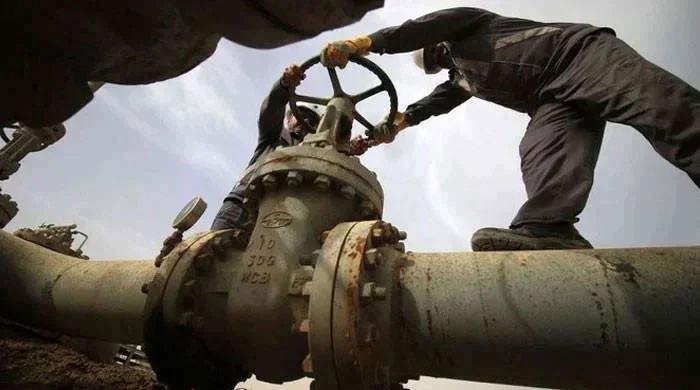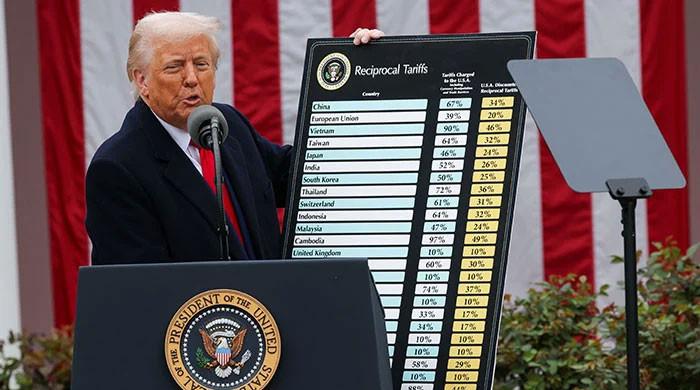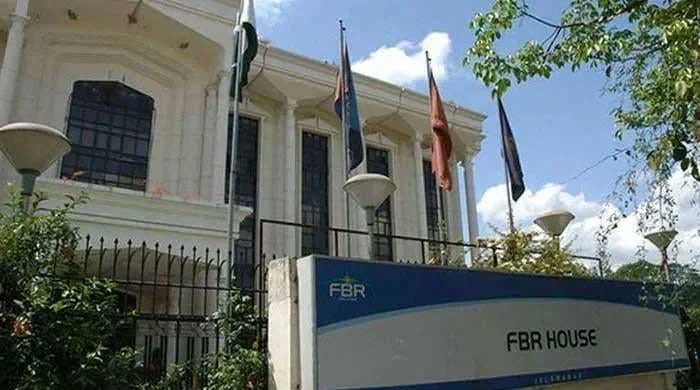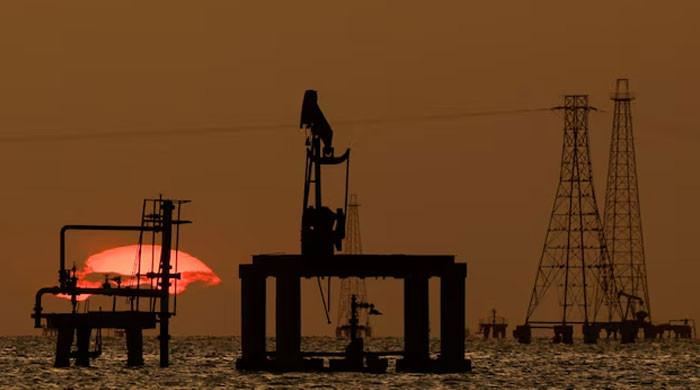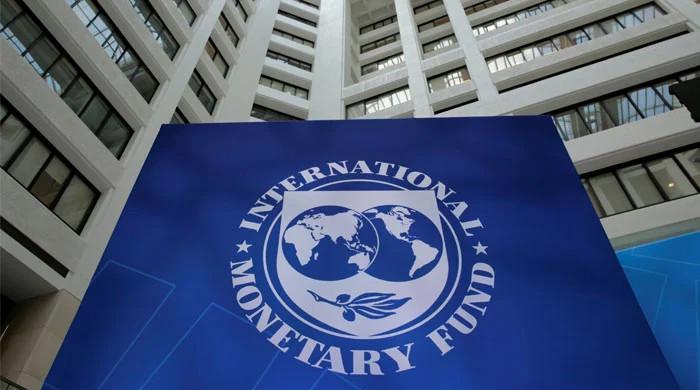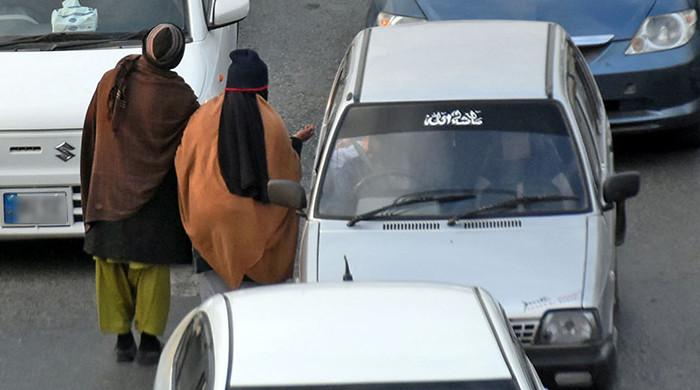Threat of default still looming over Pakistan: Miftah Ismail
"I believe the path we are on might take us towards default as economic challenges have increased," Miftah Ismail says
December 13, 2022
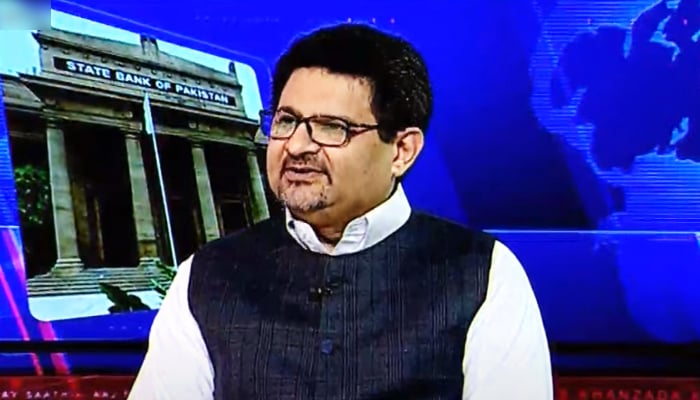
- Miftah calls for taking steps to avert threat of default.
- Ex-minister believes danger of default has increased.
- "Pakistan is in jeopardy," former finance minister claims.
Former finance minister Miftah Ismail believes the path on which Pakistan is heading might take the country towards default as he called on the government to take steps to avert the looming threat.
"Pakistan should not default, however, I definitely believe that the path we are on might take us towards default as the economic challenges have increased. We should take steps to avoid the danger [of default]," Miftah said while speaking during Geo News' programme "Aaj Shahzeb Khanzada Kay Saath".
The ex-minister said the threat of default will keep looming over Pakistan until the government completes the International Monetary Fund (IMF) the ninth review.
"Pakistan is in jeopardy; it has gone back in jeopardy and as long as IMF is not back on the table, the threat of default will remain high," Miftah — who held the post of finance minister for over five months — said.
The former finance czar refused to accept Pakistan Tehreek-e-Insaf (PTI) Chairman Imran Khan's narrative of early elections and said that the previous government had pushed the country towards default.
"Khan is responsible for pushing Pakistan towards default; he is the one who broke his promise with the IMF; Khan is the one who wanted to derail the IMF programme when we tried to revive it under Prime Minister Shehbaz Sharif's leadership."
Pakistan ended its immediate default risk earlier this month when the State Bank of Pakistan (SBP) made the payment of $1 billion for the sukuk bond.
But since then, the foreign exchange reserves have hit a critical level after falling 10.45% to $6,714.9 million — a four-year low — as of December 2.
The fiscal deficit has already touched 1% of the GDP in the first quarter of the current financial year against 0.7% of the GDP agreed with the IMF.
However, Minister for Finance and Revenue Senator Ishaq Dar — who is of the same party as Miftah — said that Pakistan would not default as it was headed in the right direction.
In a bid to shore up its forex reserves as the country's ninth review of a $7 billion IMF bailout ran into snags, Pakistan is expected to secure a multibillion-dollar financial support package from long-time ally Saudi Arabia this month, two sources said.
The two finance ministry officials said the Saudi package would include deposits boosting the country's foreign reserves and oil on deferred payments.
"We are expecting that we will, God willing, get financial support from Saudi Arabia, most likely this month," one of the senior officials told Reuters, adding it would be around a $4 billion package.
With the IMF's ninth review pending since September, Pakistan has desperately been scrambling to secure financing to meet external payment obligations for the current financial year.
Ahead of the review, Pakistan has been trying to approach allies to seek financial support, and Dar had said that he would expect to get $3 billion from a friendly country.
"The IMF has asked for more information to complete the ninth review," Dar said on Monday, adding it was "unusual" because Islamabad had met all the requirements already.
He said the IMF wanted Pakistan to explain how the country will fund the cost for the reconstruction and rehabilitation of the devastating flood, which this summer was estimated to have insured over $30 billion in losses.
The minister and the IMF have said that discussions continued online over the review. There is no date yet for a physical review by the IMF.
The IMF approved the seventh and eighth reviews together in August reviving Pakistan's bailout programme, agreed upon in 2019, to allow the release of over $1.1 billion.
Pakistan secured a $6 billion bailout in 2019 that was topped up with a further $1 billion earlier this year.




